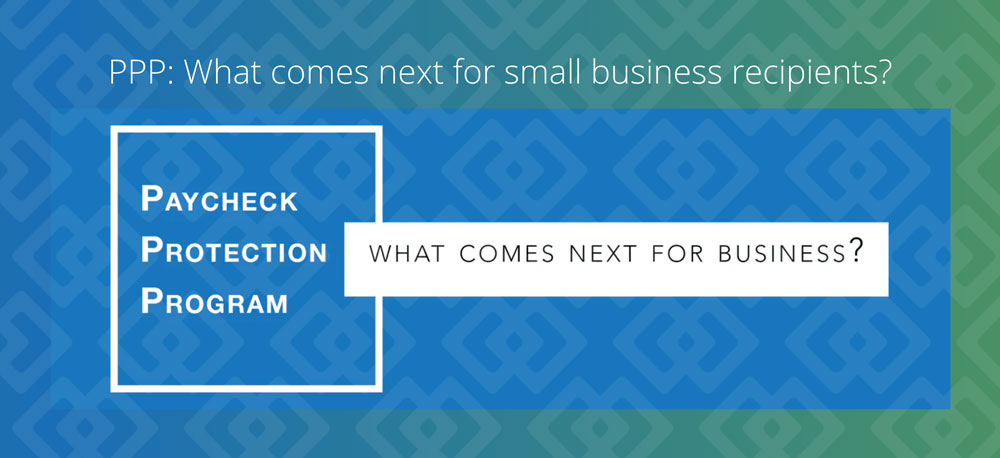By: Joseph V. Giordano, CPA, CGMA, President and Managing Partner, Whisman Giordano & Associates
Congratulations! You successfully navigated the US Small Business Administration’s (SBA) Paycheck Protection Program application process, were approved, and the money is in your account. Now, you may be asking yourself, “What’s next?”
How to account for the funds?
The first thing to remember (and the conservative course of action) is that these funds are a loan, and you should develop a plan to repay the loans in case the loan is not forgiven. In the coming weeks and months, we hope and expect the SBA to issue further guidance on the parameters for loan forgiveness.
What are the criteria for PPP loan forgiveness?
As of this moment, the forgiveness criteria is based on:
- payroll & related costs (health benefits & payroll taxes)
- rent
- utilities
- mortgage interest
There are specific limitations such as a cap on any individual employee making more than $100,000 in annual compensation. We understand this to mean a pro-rata amount per pay period. Additionally, only amounts up to 25% of loan forgiveness may be for costs other than payroll and related costs.
If your loan is not forgiven, the loan terms require payments over two years, with a six-month deferral (so really, it’s over 18-months) at an interest rate of one percent.
Documentation is key.
You need to make sure you document the reasons that you applied for this program, such as:
- Your entity was listed as a non-essential business under your state jurisdictions stay-at-home or shelter-in-place orders,
- Economic uncertainty has caused your cash flow or revenues to stall, e.g., you are in the construction business and have been deemed essential, but your job site is not allowing anyone to work on site.
There are numerous reasons that you could have applied for these funds, and the key point is to document everything. This includes the receipt of the funds, what costs you’re paying (setting up a separate bank account is not required, but can’t hurt with regards to tracking the actual dollars going out the door), and finally, any repayments you may have to make.
The latest from the IRS and SBA
On April 28, 2020, the SBA, in partnership with the US Department of Treasury, began reviewing all PPP loans above $2,000,000 (along with other loans) to ensure eligibility requirements were met. If you fall into this category, you need to be ready to present all of the documentation you gathered for your application for this review.
Included in the April 28 updated FAQ’s, was qualification guidance for larger companies who already have adequate sources of liquidity to support their ongoing operations. These companies may not qualify for loans. If you think this describes your entity, the SBA is allowing you to return the funds by May 7, 2020. They will consider you to have made the required certifications on your application in good faith.
Additionally, on April 30, 2020, the Internal Revenue Service ruled in Notice 2020.32, that any expenses paid for by forgiven PPP funding will not be deductible for tax purposes. While originally believed that this forgiveness would not be taxable, the Notice seemingly reverses that. It could be that your entity has lost significant revenues, and this could be a moot point. It seems to us that the IRS does not want businesses to be able to receive tax-free funding, while also creating net operating loss carryforwards. However, on May 5, a bipartisan delegation led by Chuck Grassley (R-Iowa), Chairman of the Senate Committee on Finance, Richard Neal (D-Massachusetts), Chairman of the House Committee on Ways and Means and Rob Wyden (D-Oregon) Ranking Member of the Senate Committee on Finance, sent a letter to Treasury Secretary Steve Mnuchin that this action, “ignores the overarching intent of the PPP, as well as the specific intent of Congress to allow deductions in the case of PPP loan recipients.” They go on in the letter to describe the Notice as “flawed” and “urge” Secretary Mnuchin to “reconsider the determination in light of congressional intent.” We’ll keep you posted as to any changes with the Notice. With this much unified Congressional pressure, it’s not improbable more will be said on the subject.
If it seems like the rules are often changing, it is because they are. Congress rushed these funds out to provide a safety net for employers (and the ultimate beneficiary, their employees) in an unprecedented time of disruption in the United States. While Congress, the IRS, and the SBA continue to “figure things out,” it is imperative to communicate with your team of professionals. In our opinion, this includes (at minimum) your banker, attorney, and accountant. In these unprecedented times, it is imperative to have your entire team working in tandem.
You can find the SBA’s Frequently Asked Questions here.
Joseph V. Giordano, CPA, CGMA is the President and Managing Partner of Whisman Giordano & Associates located in Newark, DE. Joe has over 15 years of experience in public accounting and belongs to the American Institute of Certified Public Accountants and the Delaware Society of Certified Public Accountants. He is the founder of the Amy L. Giordano Fund at the Boys and Girls Club of Delaware and a winner of the Delaware Business Times, “DBT40” award.


